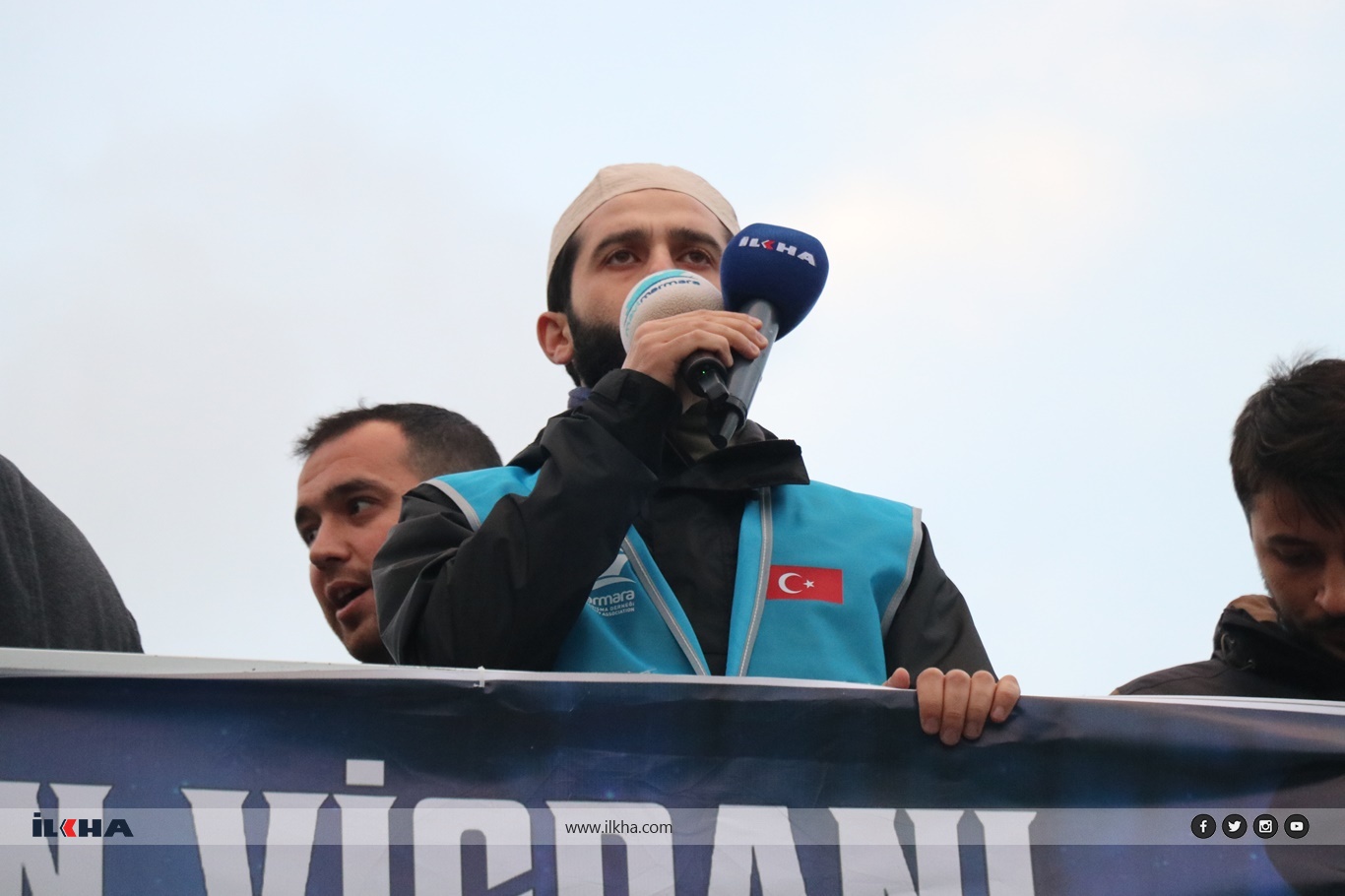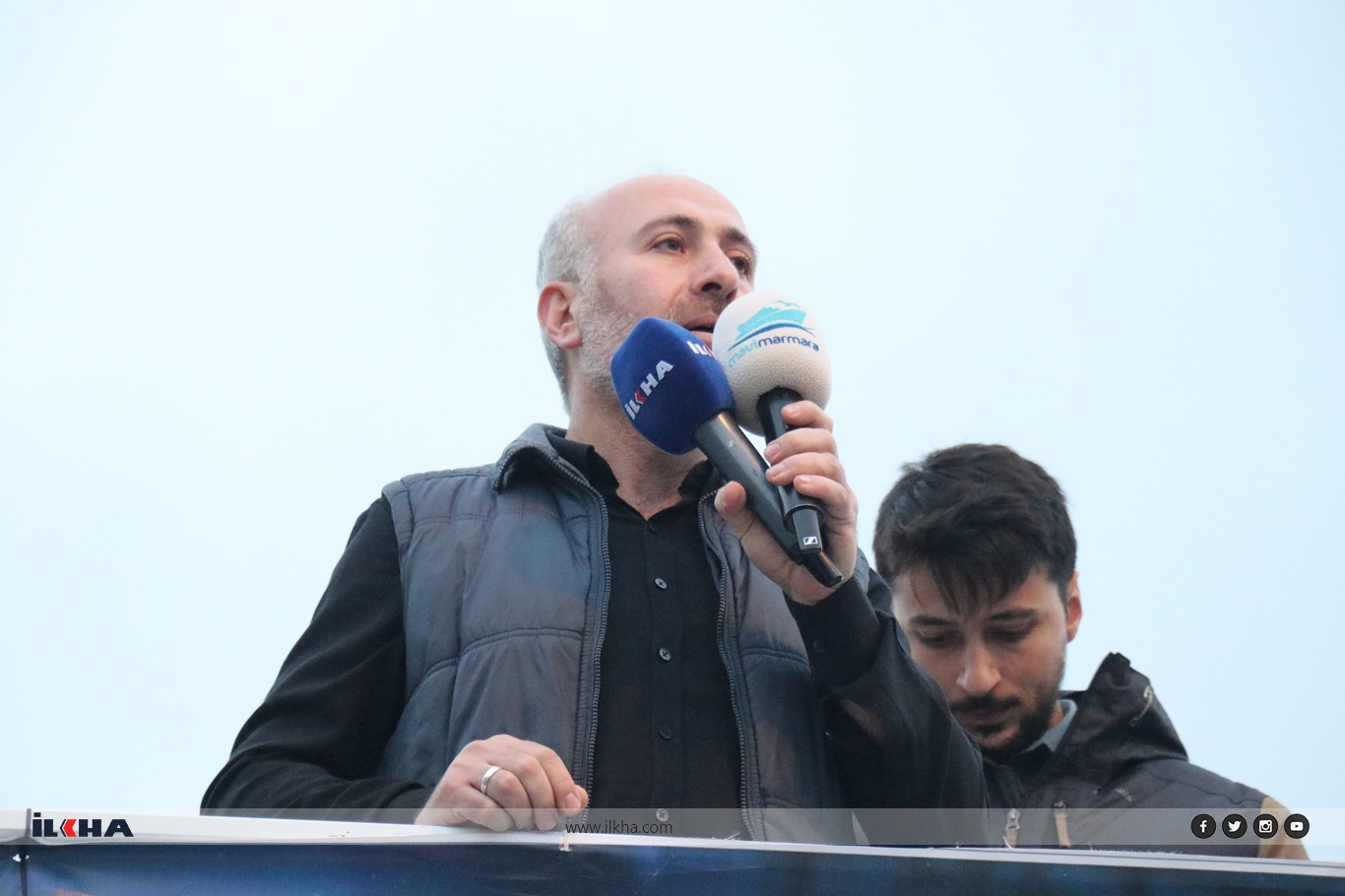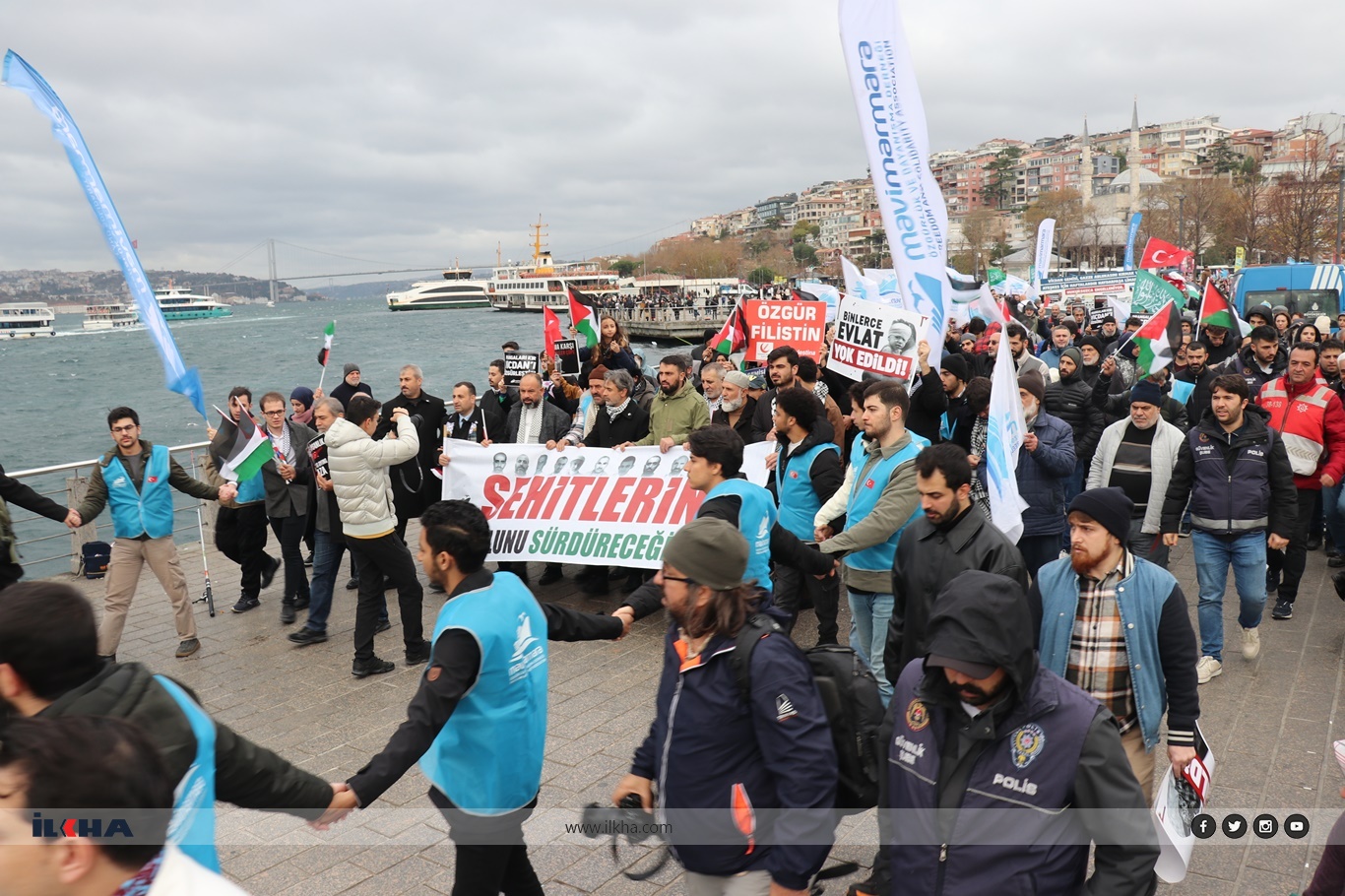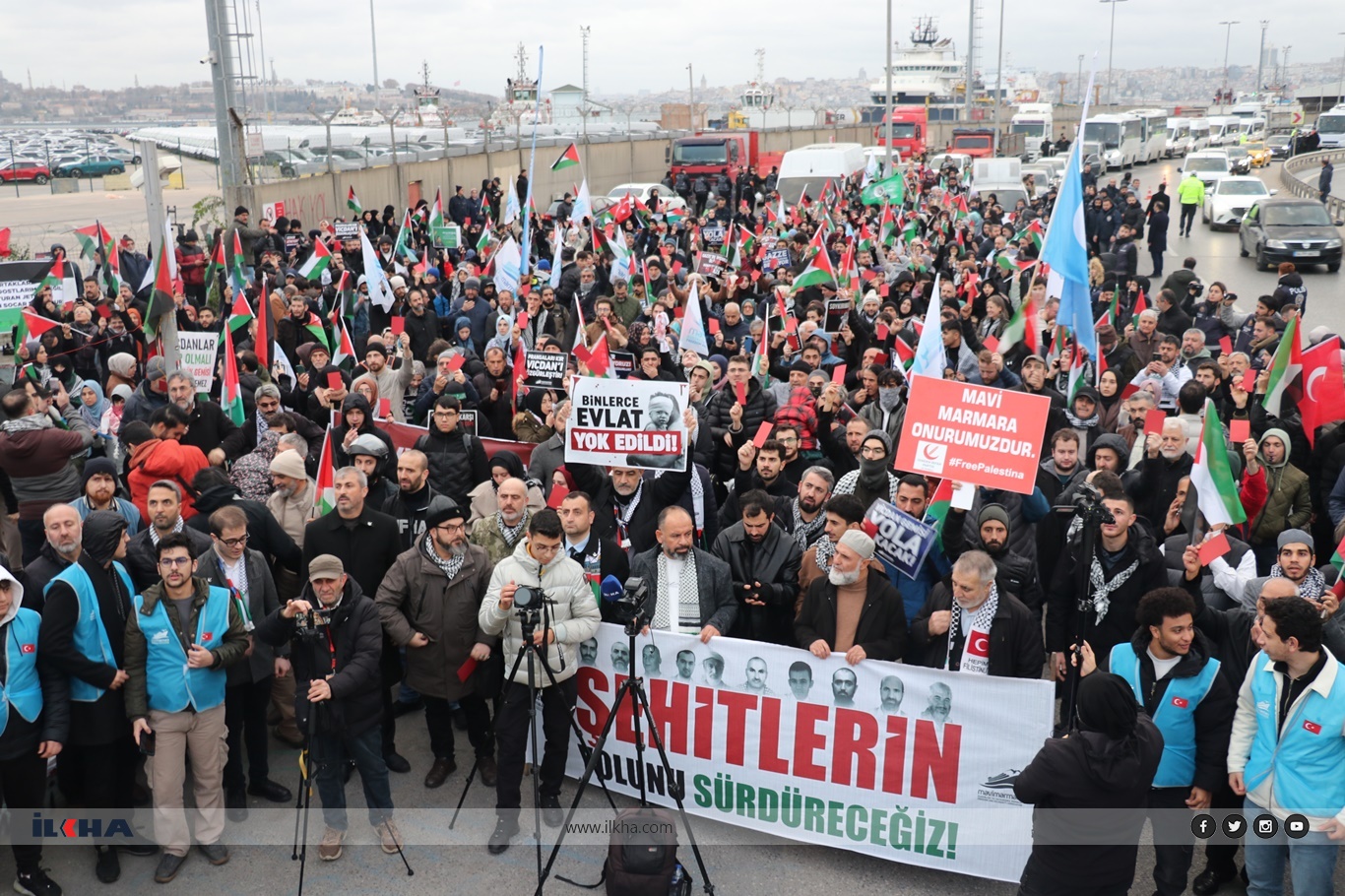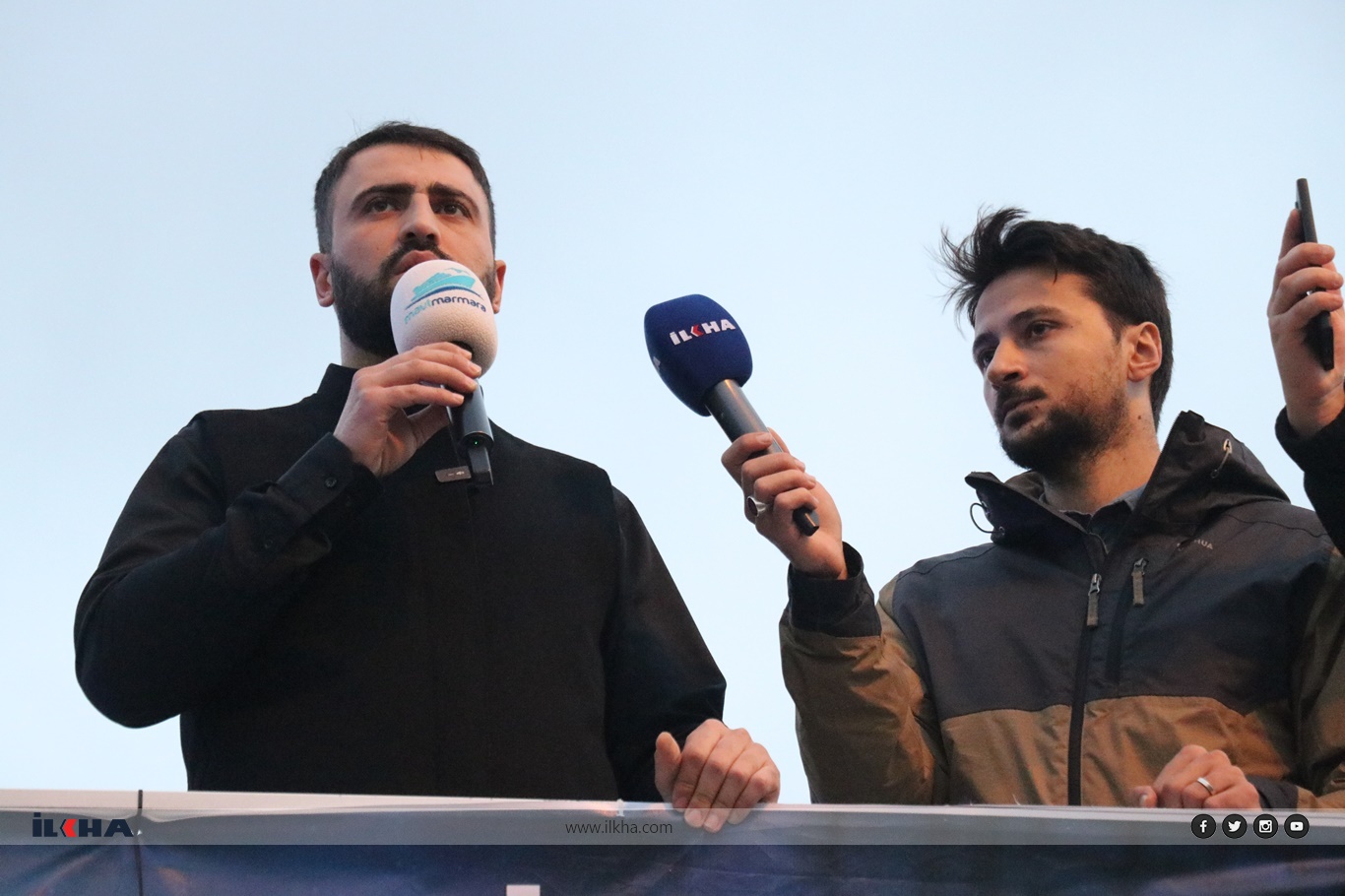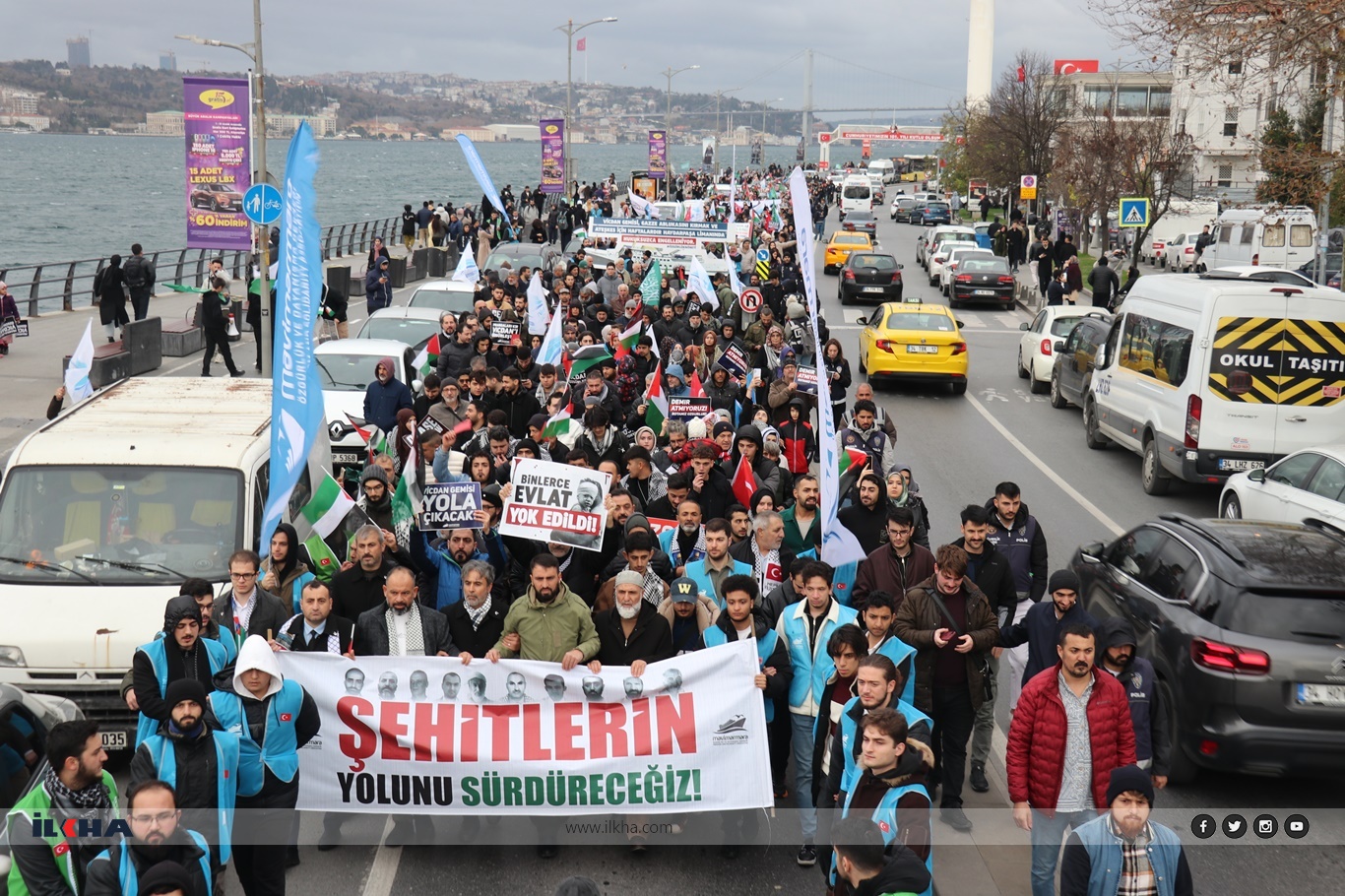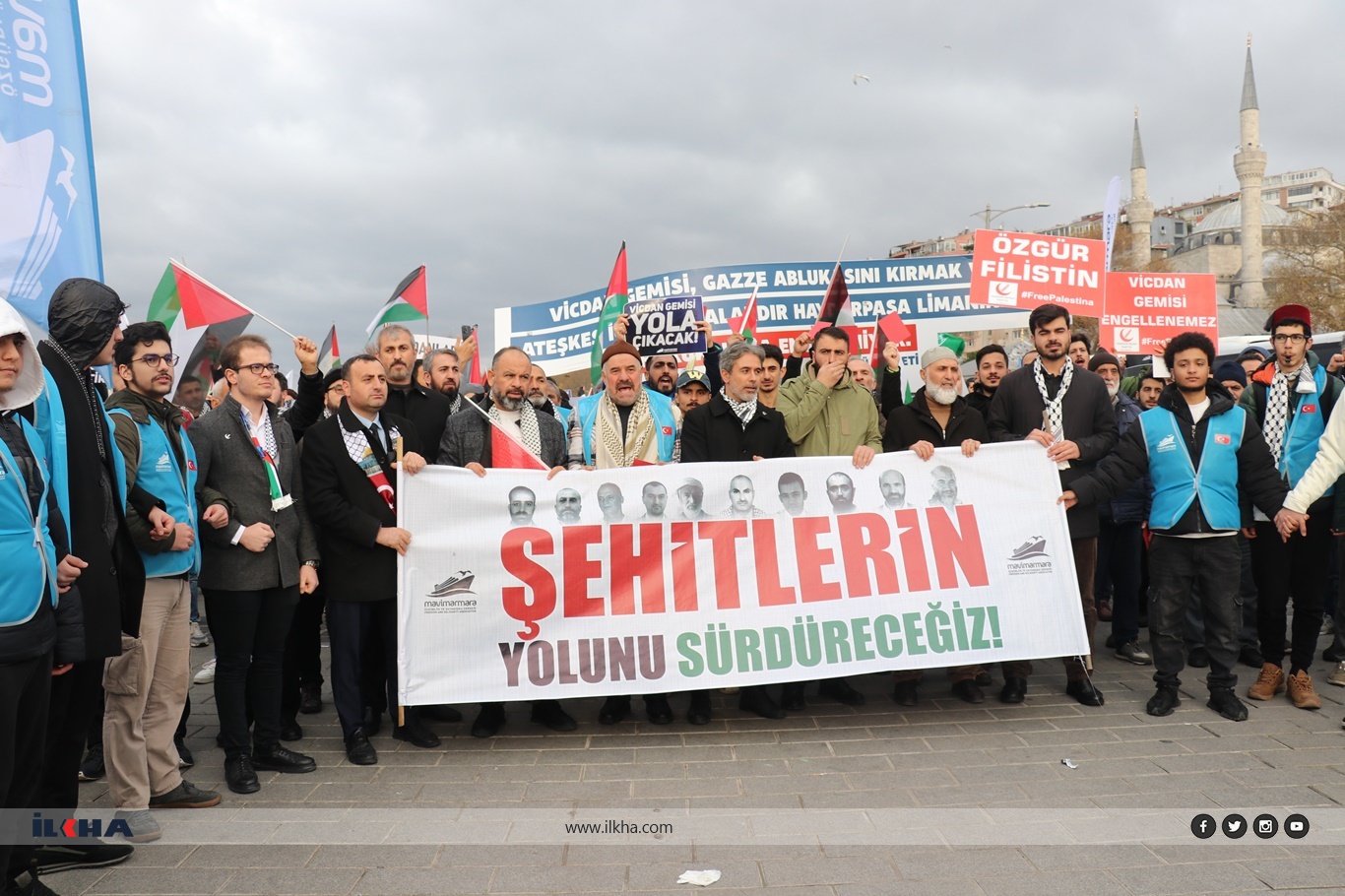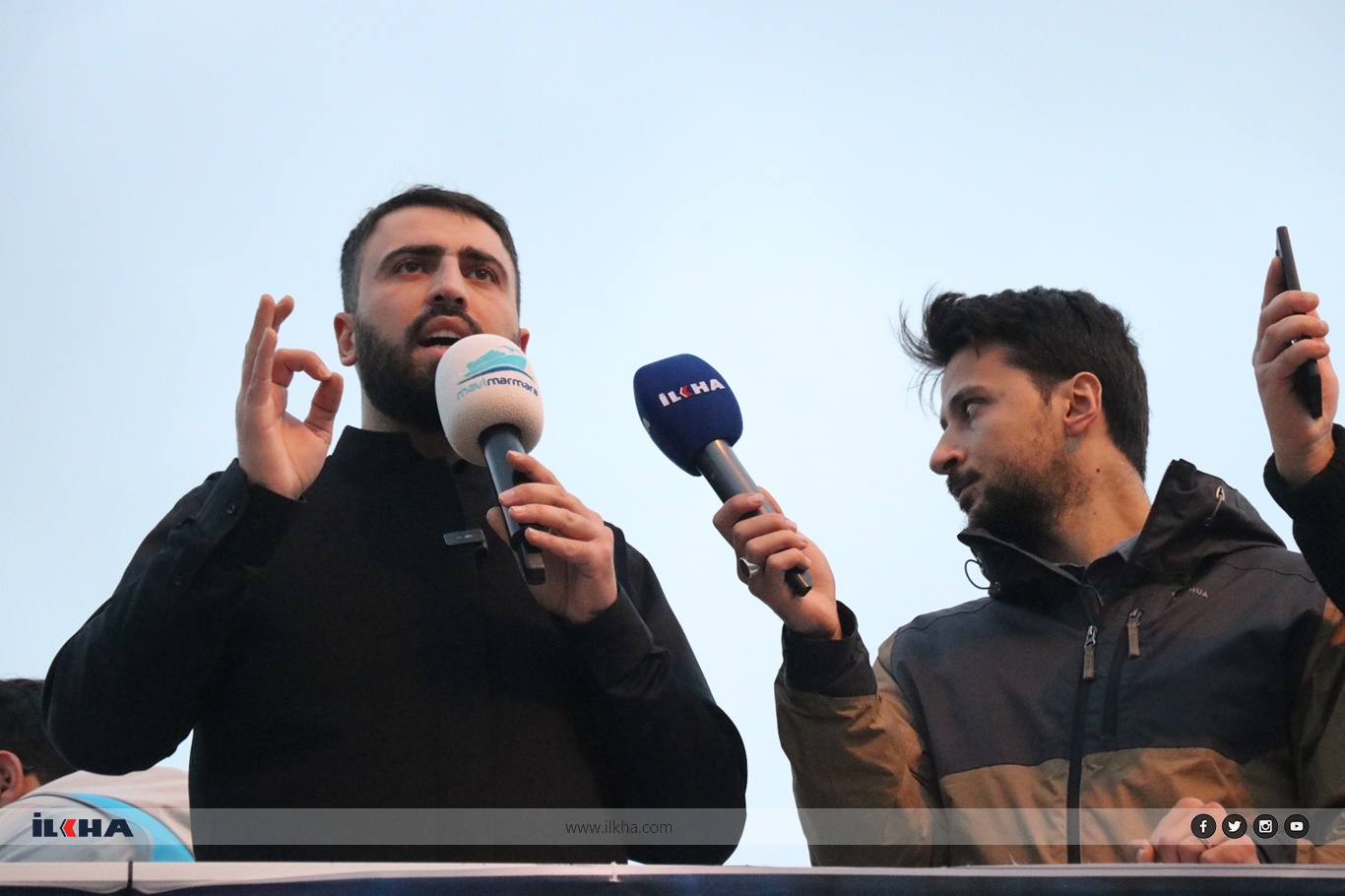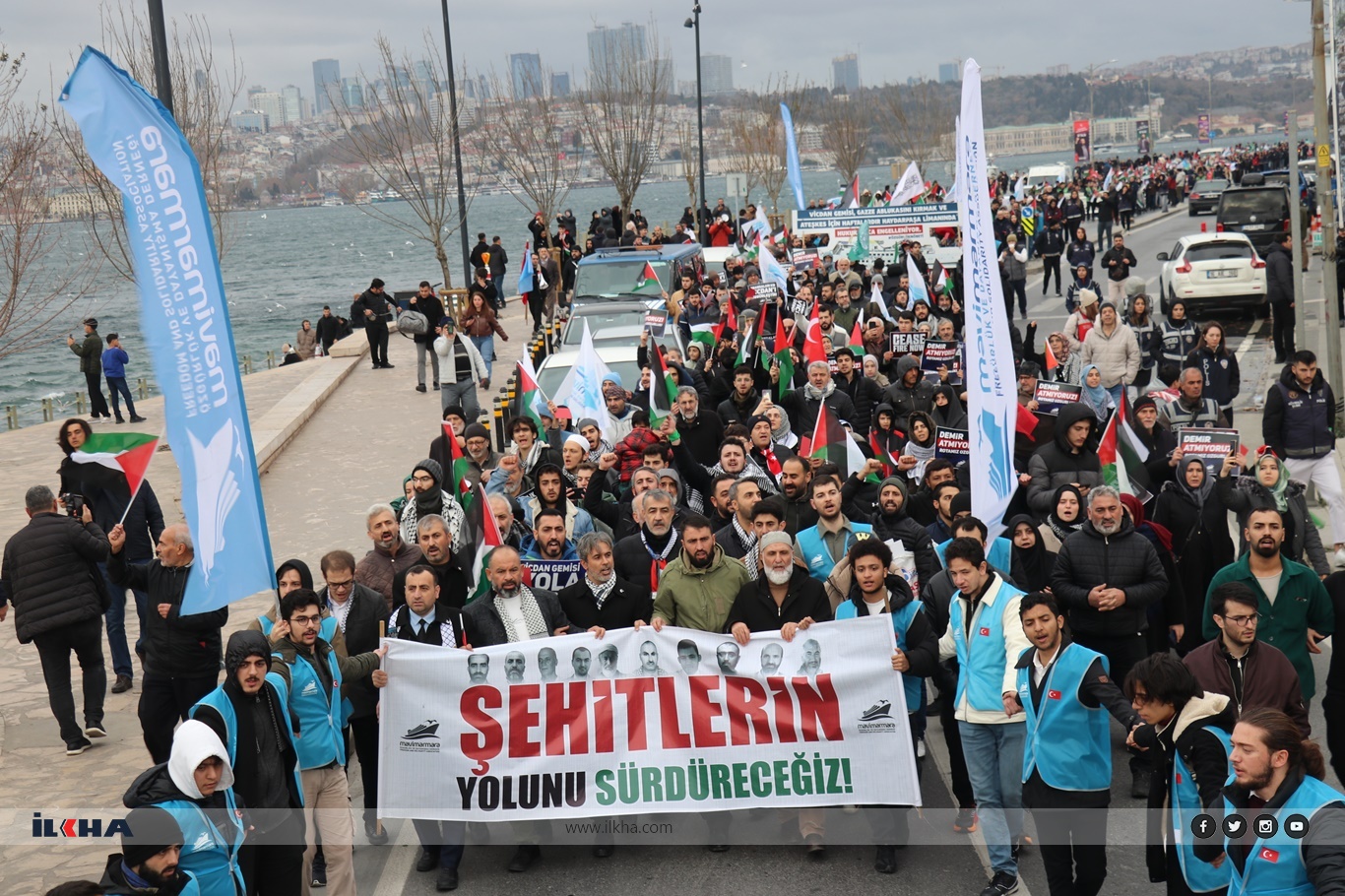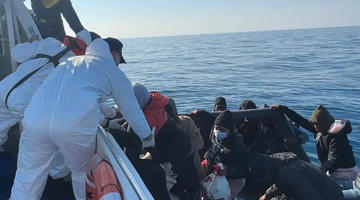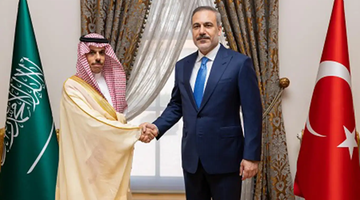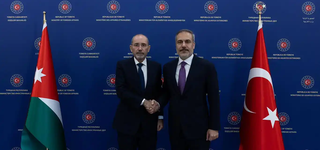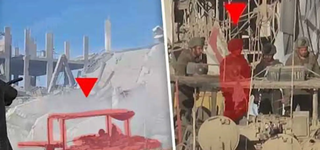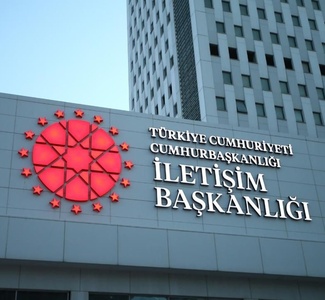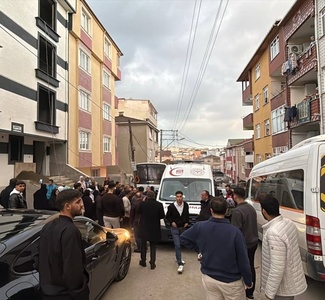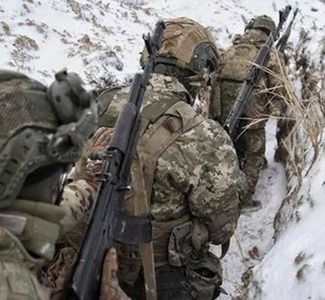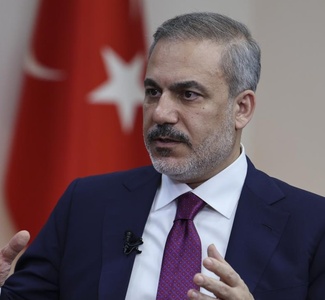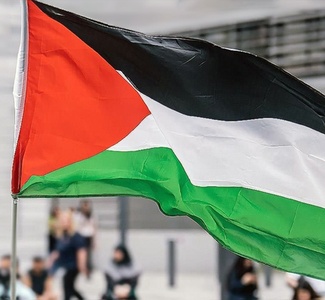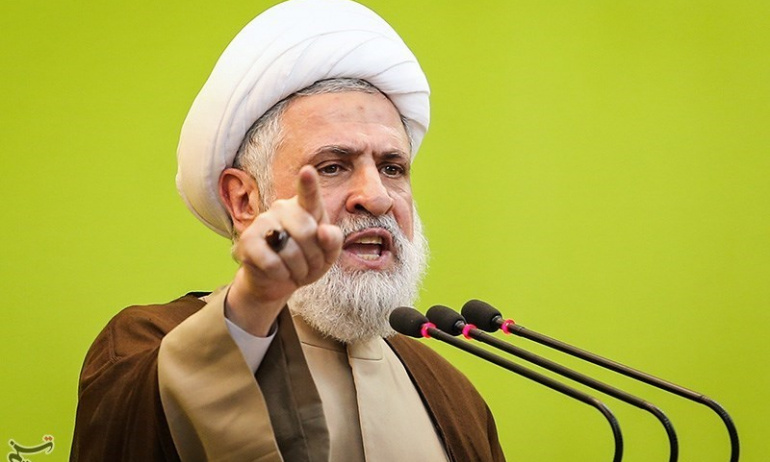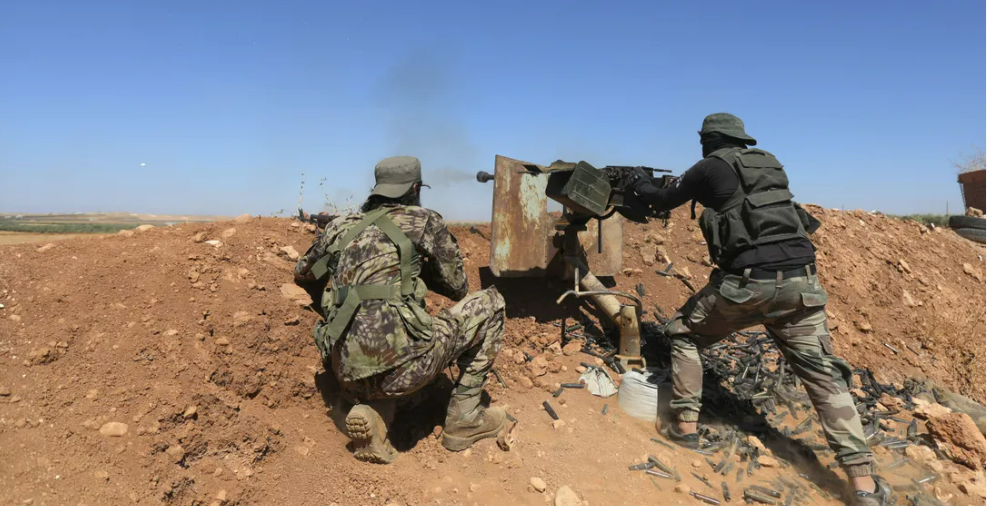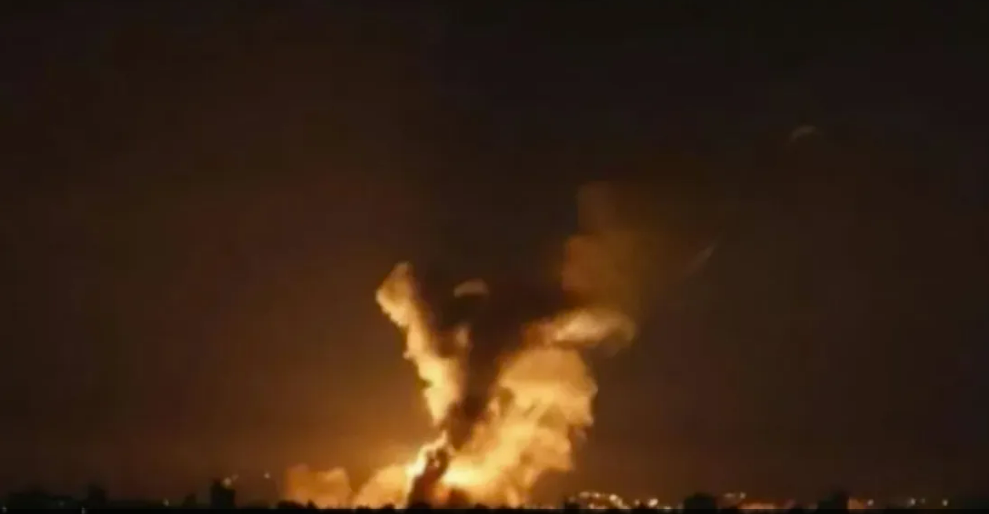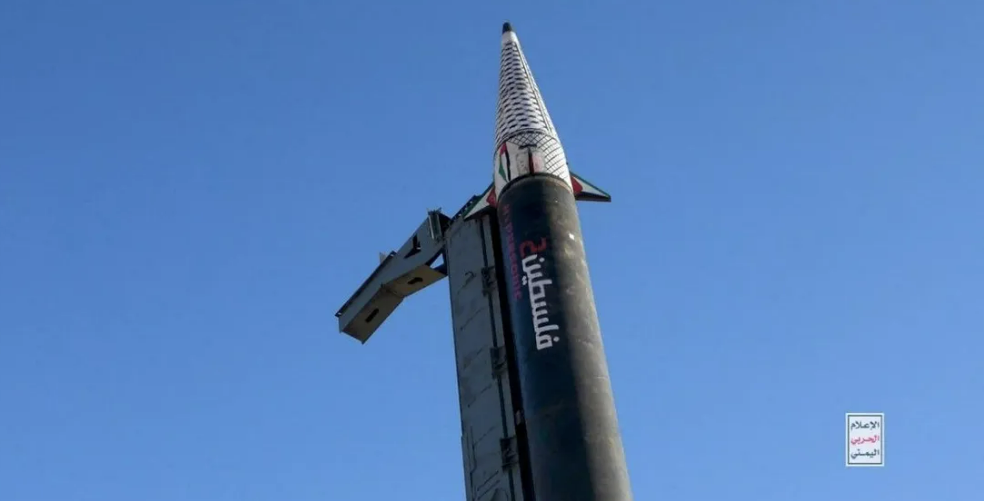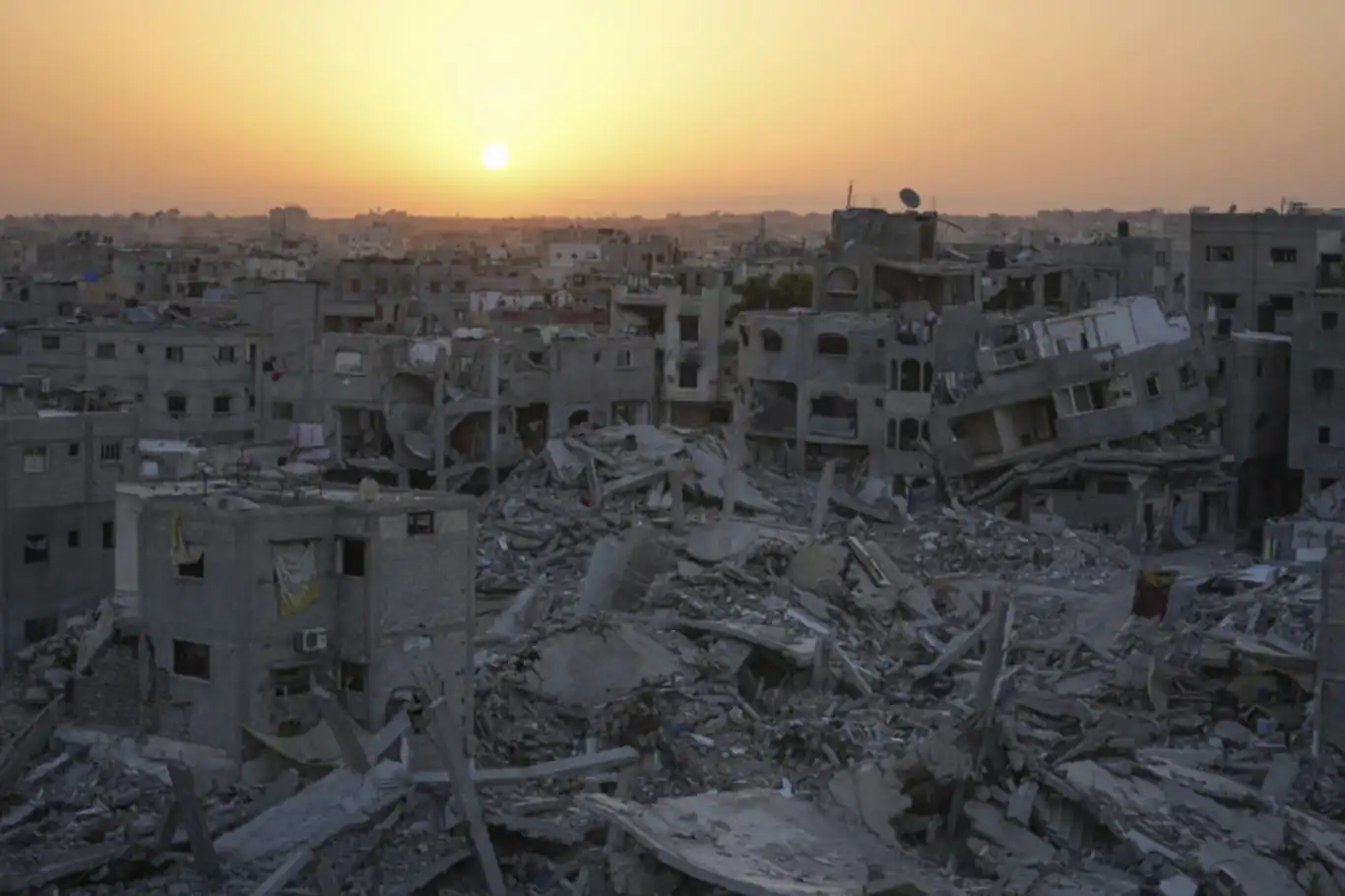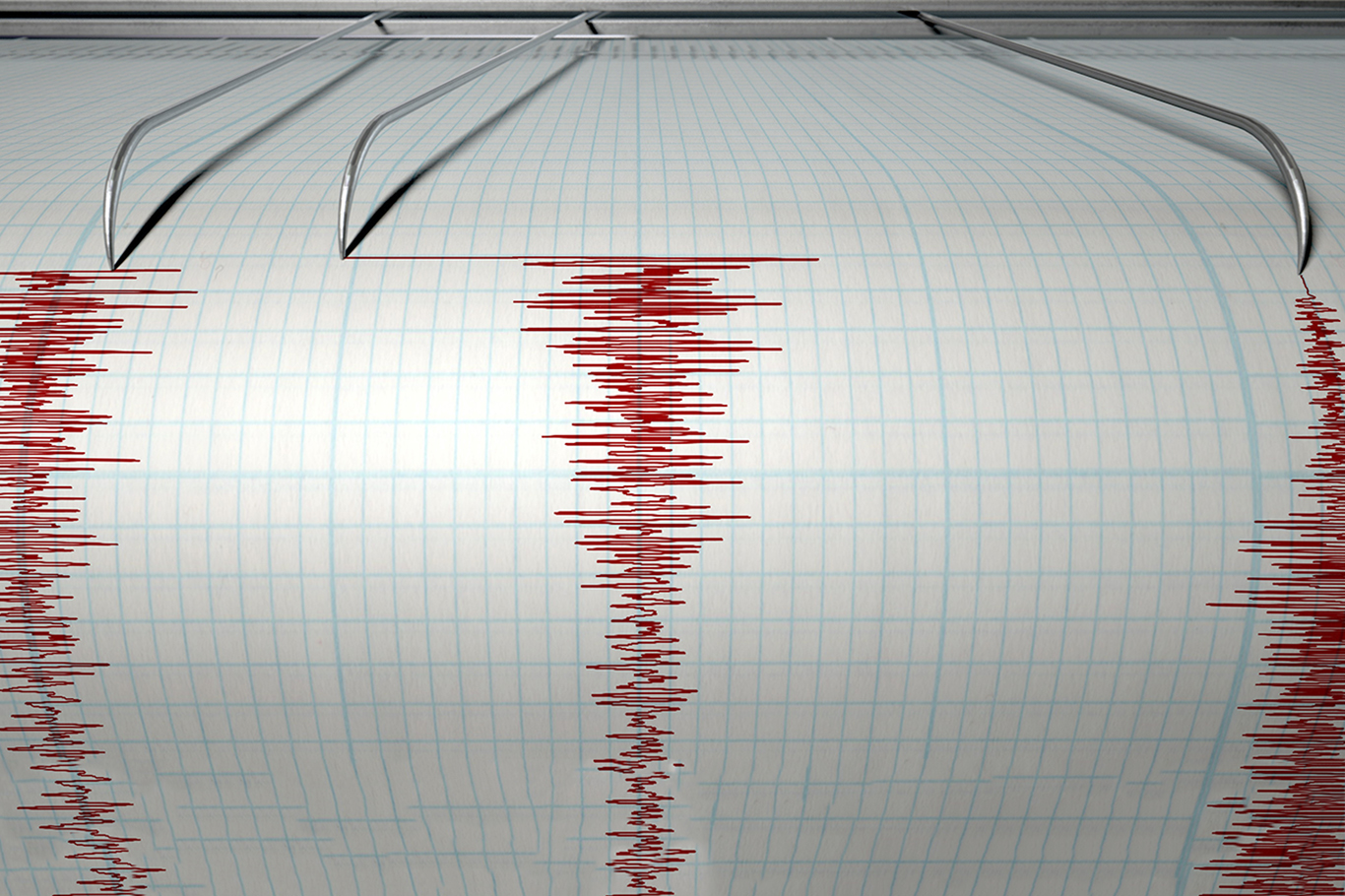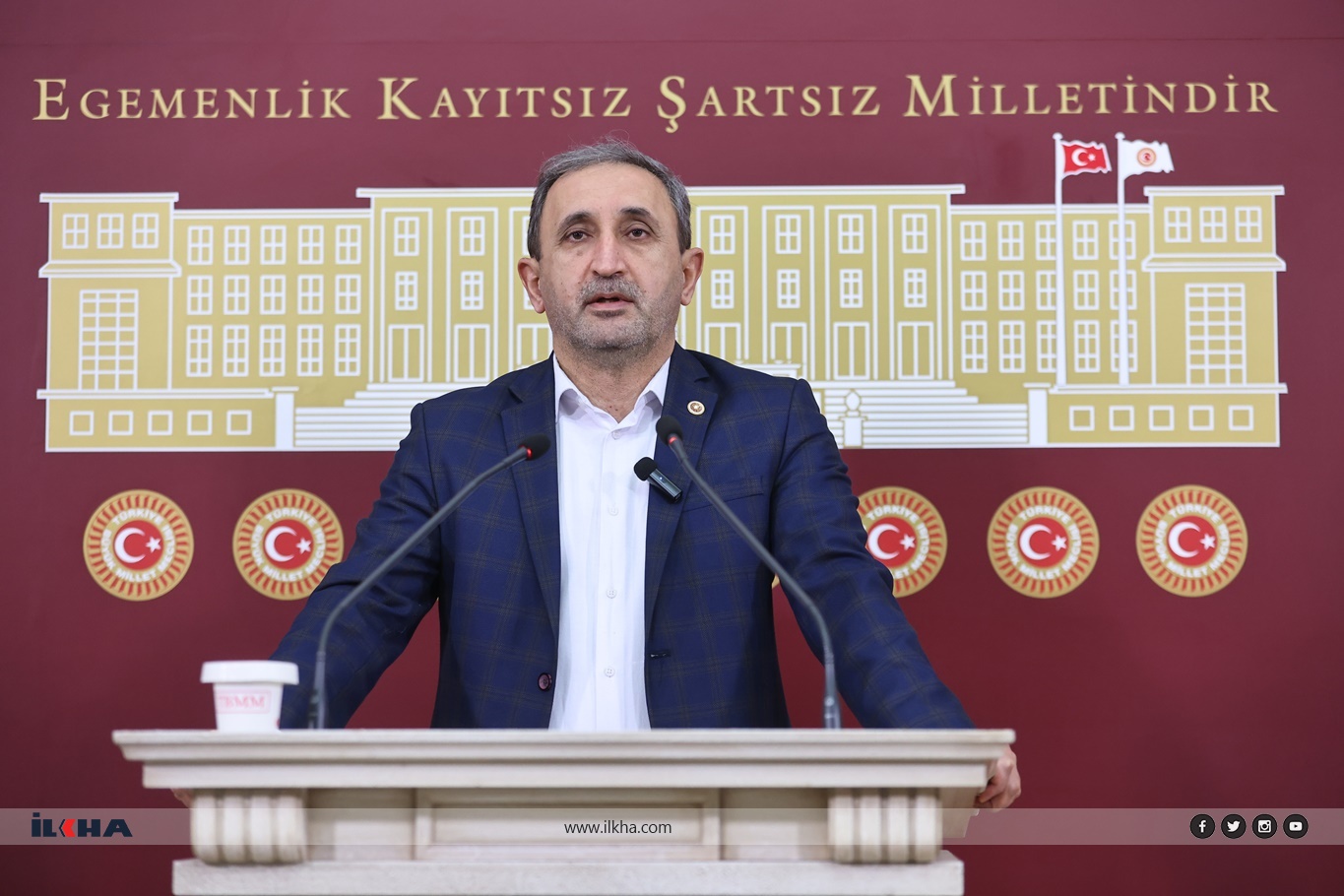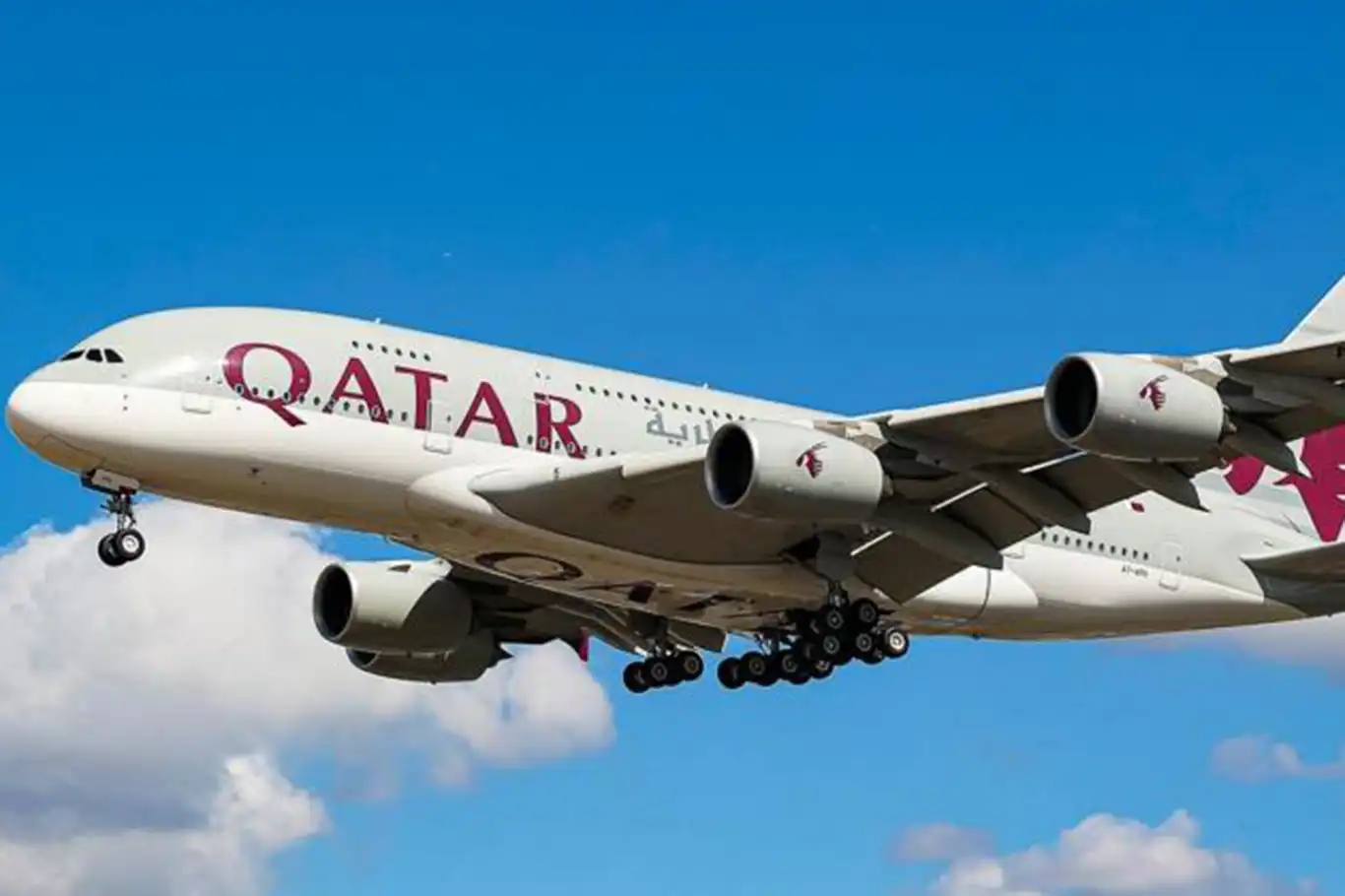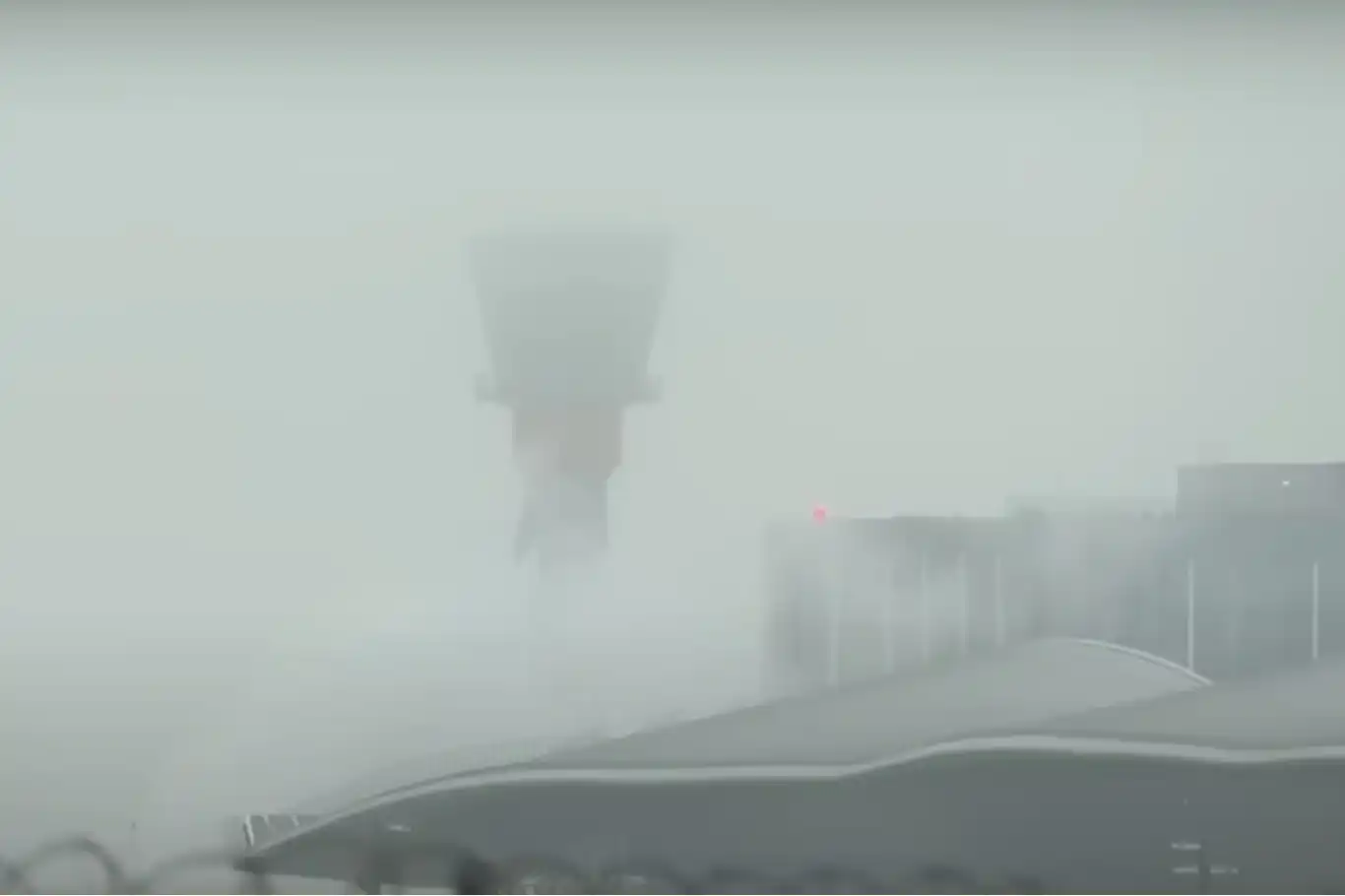Great Gaza March: Protesters demand release of blocked 'Ship of Conscience'
A significant protest, the "Great Gaza March," was held in Istanbul to demand the departure of the "Ship of Conscience," a vessel carrying humanitarian aid to Gaza.
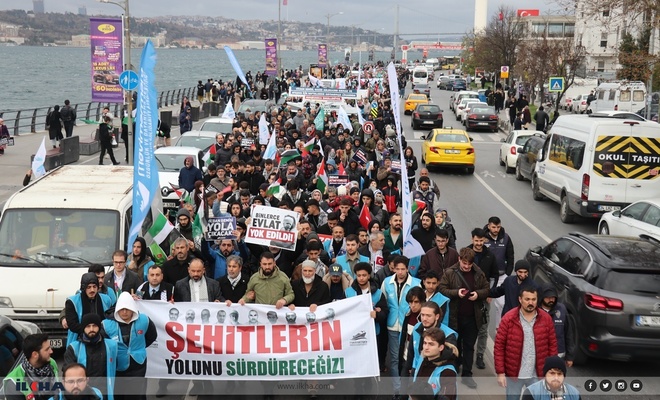
 Google News'te Doğruhaber'e abone olun.
Google News'te Doğruhaber'e abone olun. The ship has been detained at Haydarpaşa Port for nearly five months due to bureaucratic hurdles.
Organized by the Mavi Marmara Association, the "Great Gaza March" brought together hundreds in Istanbul, with participants walking four kilometers from Üsküdar Square to the port.
Holding Palestinian flags and banners, the demonstrators demanded justice, urging Turkish authorities to allow the ship's departure and calling for an end to trade relations with Israel.
The march, imbued with fervent emotion and unyielding determination, culminated at the site of an 88-day vigil outside the port's Gate C. Chants of "Freedom Flotilla cannot be prevented" resonated, underscoring the mounting frustration among activists, religious leaders, and political figures.
Ali Yener, Chair of the Palestine Commission of the New Welfare Party, took the stage, calling on Turkish officials to stand firm against Israel. “Israel understands power, not words,” Yener declared, urging the government to use its authority to release the ship.
Mahmut Kar, a prominent speaker and representative of Köklü Değişim Magazine, passionately criticized the lack of action in the face of Israel's aggression. Quoting the 75th verse of Surat al-Nisa, Kar reminded attendees of the moral and religious imperative to act against oppression. His words struck a chord: “If you normalize with Israel during a ceasefire, we will hold you accountable. We will not rest until Gaza and Istanbul are united.”
Beheshti Ismail Songür, President of the Mavi Marmara Association, painted a grim picture of the situation in Gaza. Hospitals bombed, schools destroyed, and innocent lives lost to what he described as a “genocide” carried out by Israel. Songür condemned the Turkish government’s inaction, noting that while the "Ship of Conscience" remained blocked, commercial ships allegedly supplying weapons to Israel had been allowed to dock at the very same port.
"Not only are you doing nothing, but you are also hindering the efforts of conscientious people trying to help," Songür stated, accusing authorities of prioritizing political and economic interests over human lives.
The frustration among activists highlights a broader sentiment: a disconnect between the rhetoric of solidarity and tangible action. Demonstrators argued that Turkey’s leadership has raised expectations with strong statements against Israeli policies but failed to deliver on those promises.
The marchers, many of whom came from 52 different countries, reflected the international outrage over Gaza's plight. Yet, the inertia of Islamic nations, despite their collective military might dwarfing that of Israel, remains a bitter reminder of the geopolitical complexities hindering unified action.
The "Great Gaza March" and the vigil at Haydarpaşa Port are more than protests; they are emblematic of a growing frustration with global inaction in the face of Israeli aggression. The ship’s immobilization has become a symbol of a broader struggle — the fight for justice, dignity, and freedom for Palestinians.
The protesters’ demands are clear: let the Ship of Conscience sail, end economic ties with Israel, and mobilize meaningful action against the occupation. The message is equally direct: words are no longer enough. Without decisive action, the promise of justice risks becoming another unfulfilled aspiration in the long history of the Palestinian struggle.
The march was not just a protest but a call to awaken the collective conscience of humanity. For those gathered in Istanbul, the stakes are higher than ever. Gaza's survival depends not only on their voices but on the willingness of leaders worldwide to turn solidarity into action. (ILKHA)
